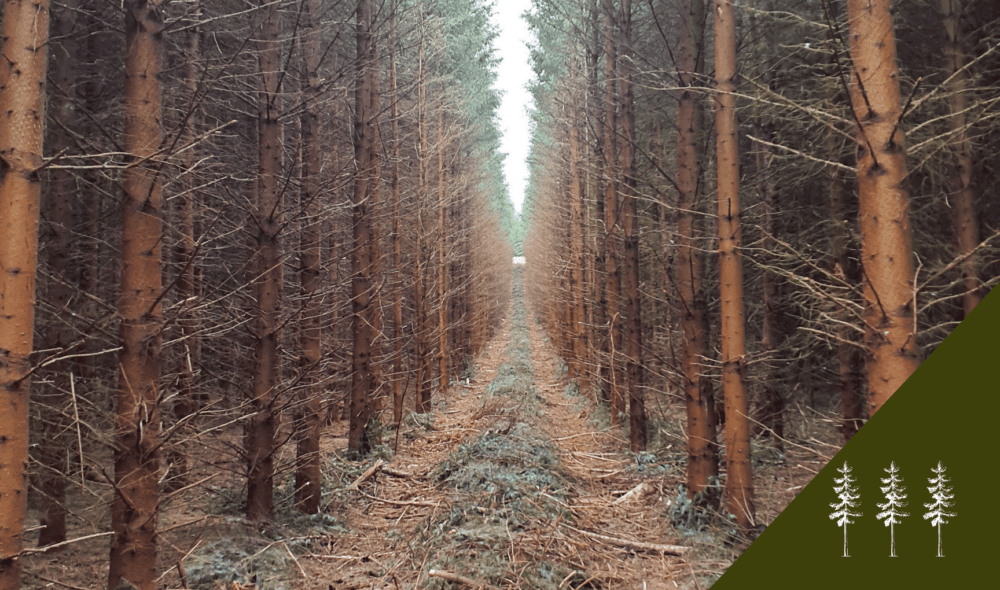This website uses cookies so that we can provide you with the best user experience possible. Cookie information is stored in your browser and performs functions such as recognising you when you return to our website and helping our team to understand which sections of the website you find most interesting and useful.
David, what can you tell us about monoculture plantations in the UK? Are they good or bad?
Monoculture plantations are in decline within the UK. Where they do exist, they tend to date from having been planted in the 1960s and 1970s and so have reached maturity and are overdue for felling and replanting.
They are not being replaced like for like and although in a forest being created now, a single species may still be in the majority, the introduction of alternative species and open ground increases the biodiversity of a previously single species plantation. Although monoculture plantations belong in a bygone era it should not be forgotten that they form the basis of today’s thriving timber processing sector! It is this success and buoyancy within our sector that makes modern more diverse forests financially viable.
Do Tilhill still manage any monocultures forests? If yes, what changes are they making to them?
In short no, but I am sure there are probably some exceptions, mainly of forests that we have recently taken on the management and have yet to go through the transition away from even-aged single species plantation to what can be regarded as modern forests with more diverse species and open ground.
Does the UKFS (UK Forestry Standard) steer plans away from monoculture?
Modern forests must comply with the UKFS which is regarded and accepted across the forestry sector as representing good practice.
All properties managed by Tilhill are managed in compliance with the UKFS as a minimum and many are managed by the more exacting UKWAS (UK Woodland Assurance Standard) which provides externally audited certification that the standard is being met. Both standards prescribe the maximum proportion of a forest that can be a single species and so preventing the development of monocultures.
What are your thoughts on the future of forestry, what changes do you think need to be made?
The factors favoring sustainable forest management have never been more aligned than they are now, with politicians and governments of all persuasions supporting the establishment of more forests and woodland. For example, the fact that trees suck carbon dioxide out of the atmosphere and so contribute to net zero targets and can then lock that carbon away for decades in the form of a timber product, as well as substituting for non-sustainable concrete and steel.
We have in the past had periods of significant woodland creation, but we have never had that in combination with the levels of timber production we are enjoying today making this a golden age for UK forestry and an exciting time to embark on a career in forestry and timber processing.
However, not all trees are the same and we need to ensure, with all the checks and balances required of UKFS and UKWAS, that we continue to grow productive timber species and, for most of our timber producing forests that are found in the uplands of Britain, that means growing conifers. It is timber produced from our productive conifers that helps substitute for the 80% of timber products we import with only China importing more timber than the UK!
by David Edwards, Forestry Director
Since graduating from Aberdeen University with an Honours Degree in Forestry in 1984 David has worked in the private sector holding positions in Scotland, England and Wales.
He joined Tilhill as District Manager for the former South Wales District in 2003 and took over responsibility for the newly merged Wales and Marches District in 2012.
In 2020 he became the Regional manager for Wales & Marches. He was appointed to the Tilhill Board in 2021 as Forestry Director and although still based in Wales he now has operational responsibility for our Forestry Teams across the UK
He is a longstanding Fellow and former President of the Institute of Chartered Foresters.





